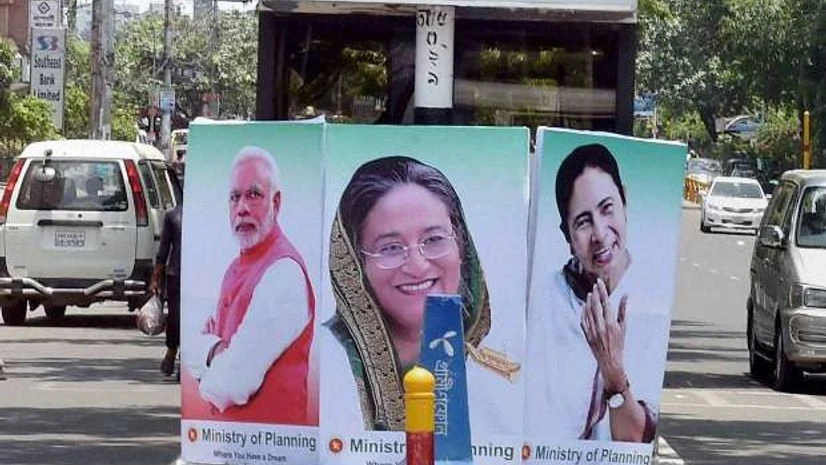India and Bangladesh on Saturday sealed a historic deal to settle the 41-year-old land boundary dispute and promised to do more in other areas. Prime Minister Narendra Modi, on a two-day official visit to that country, announced a fresh line of credit of $2 billion to Bangladesh. In the presence of his counterpart Sheikh Hasina and West Bengal Chief Minister Mamata Banerjee, Modi expressed confidence to have a "fair solution" to the Teesta and Feni water-sharing issues with Bangladesh "with the support of state governments in India".
After extensive talks between Modi and Hasina, the two sides signed 22 agreements, including those on cooperation in maritime safety, curbing human trafficking, and fake Indian currency.
Hasina, whose country is seen as a hiding ground for insurgents of Northeast India, also promised "zero tolerance" stance against terrorism. She said the two countries agreed to set up two special economic zones to bridge the growing trade deficit.
Modi promised to do "everything" to bridge the gap.
Besides announcing a fresh $2-billion credit line, Modi promised quick implementation of the earlier line of credit of $800 million and full disbursement of $200 million.
The highlight of Modi's first day in Dhaka was the exchange of documents related to the Land Boundary Agreement (LBA), which paved the way for exchange of territories to settle the 41-year-old border dispute.
Under the agreement, 111 border enclaves will be transferred to Bangladesh in exchange for 51 that will become part of India.
"The visit is at a historic moment. We have resolved a question that has lingered since Independence. Our two nations have a settled boundary. It will make our borders more secure and people's lives more stable," Modi said at a joint press interaction with Hasina.
Referring to the unanimous passage of LBA by Parliament last month, he said it "reflects the consensus in India on relations with Bangladesh".
Noting that the two countries had accepted the settlement of the maritime boundary last year, he said: "It is evidence of maturity of our ties and our shared commitment to international rules. So, we stand at a moment of huge opportunity in our relationship. Prime Minister (Hasina) and I recognise that."

)
